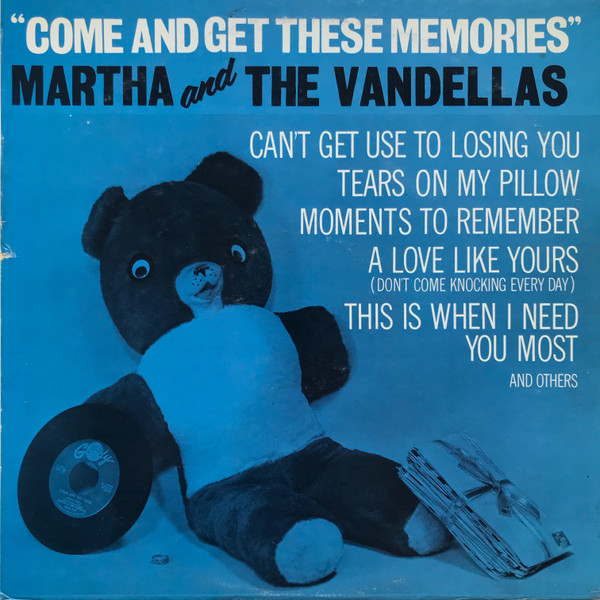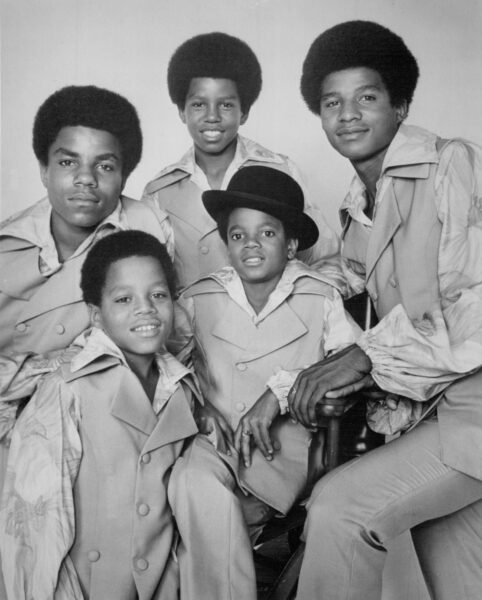The accidental secretary becomes a hitmaking singer.
Martha Rose Reeves never intended to do secretarial work at Motown. Like many aspiring singers, she had a series of day jobs but she spent her nights gigging at various Detroit nightclubs singing mainly jazz and blues. According to Motown lore, Motown’s A & R director Mickey Stevenson invited her to audition at Motown after seeing her perform. (A & R is the industry term for artists and repertoire. That department’s job is uncovering new songs and talent and sometimes matching the two.)
From there, the story gets a little muddled but when Reeves arrived for her audition without having scheduled an appointment, Stevenson directed her to answer the phones. Reeves kept showing up and continued answering the phones without getting her audition. It’s then said that Mary Wells failed to come into the studio to record Mickey Stevenson’s song I’ll Have to Let Him Go. Union rules at the time required that a singer be present at all recording sessions so the secretary stepped into the breach but not before calling in the other members of her group. Motown released the song and although it wasn’t a hit, it opened the door for the newly minted Martha and the Vandellas.

[Album cover from discogs.com].
They released Come and Get These Memories in June 1963 and it reached #29 on the Billboard Pop Singles Chart. In doing so, they became Motown’s second major girl group behind The Marvelettes who had already cranked out a pair hits Please Mr. Postman (Motown’s first Number One single) and Beechwood 4-5 7 8 9.
As for Martha and the Vandellas, they followed Come and Get These Memories with Heat Wave – one of their biggest hits – which was the first of 20 consecutive singles stretching into 1969 that cracked the top 100 U S pop chart topping out with this one:.
Berry Gordy, Jr. sees the light.
Recall from the previous post that Gordy was slow to sign the group that became The Supremes because he believed they were too young. He’d break that rule for two artists. The first was a solo talent born in Saginaw and the other – signed somewhat reluctantly at the end of the decade – was for five singing brothers from Gary, Indiana that featured an 11-year-old lead singer named Michael. Both found a place among the label’s biggest stars. We briefly met the first on our stop in Saginaw – namely Stevland Hardaway Morris aka Stevie Wonder and the Michael, of course, is Michael Jackson who began his career singing with his brothers as the Jackson 5.
Gordy signed the 11 year-old Stevland Morris to his Tamla label after Ronnie White of The Miracles brought him to the studio for an audition. Motown producer Clarence Paul is credited with changing his name to Little Stevie Wonder and Gordy signed him to a unique rolling five year contract. Any royalties would be held in trust until the newly christened Wonder turned 21. Instead, he and his mother were paid a weekly stipend to cover their expenses. Wonder received an additional $2.50 per week and the label provided a private tutor whenever he was on tour.
Over the next year, Paul and Wonder recorded a pair of albums – a celebration of Ray Charles called Tribute to Uncle Ray and an instrumental (Wonder had taught himself to play harmonica, piano, and drums before he auditioned for Ronnie White.) – The Jazz Soul of Little Stevie Wonder both of which were issued after his release of a Berry Gordy composition as his first single shortly after he turned 12 in 1962. The song fell just short of reaching hit status cresting at #101 on the Billboard music chart and neither album achieved much success.
However, late in 1962 and into 1963, the label made a live recording of Wonder performing Fingertips and released it as Fingertips Part 2. It soared not only to the top of the Billboard Hot 100 but also to the top of the R&B chart making it the first song to sit atop those two charts simultaneously. It was Tamla’s second single to reach number 1 and also made Stevie Wonder the youngest artist to reach the top of the charts.
Little Stevie then had the temerity to go through puberty and, as his voice changed, he failed to duplicate that early success. At this point Wonder might have felt he was standing on the outside trying to get on the inside as Gordy considered dropping him from the label altogether. The boss relented when songwriter and producer Sylvia Moy intervened. In his memoir Gordy wrote that Moy came to him and asked “if she could come up with a hit for Stevie would he reconsider.” Gordy acceded to her request and in November 1965 Wonder released her composition, Uptight (Everything’s Alright) that reached number three on the Hot 100.
The rest is, as they say, history. The LP Uptight topped out at number 33 on the US album chart and six of Wonder’s next seven albums also charted. Wonder became Motown’s biggest selling artist in the 1970s and beyond. Only one of the 16 albums he’s released since then has failed to chart but two reached number one and another seven entered the top five.
Not Louisiana, Paris, France, New York, or Rome but…
By 1967, Motown had outgrown even the empire on Grand Avenue and Gordy purchased a building at 2457 Woodward Avenue that came to be called the Motown Building.

[Photo from historicdetroit].
Meanwhile, in Gary, Indiana – some 250 miles or so west (and a little south) of Detroit – a part-time blues guitarist named Joe Jackson had spent the previous seven years molding five of his sons into a musical act generally performing as The Jackson Family. Jackie, the oldest son in the group, started as its lead singer but by the time his precocious younger brother Michael turned five in 1963, the group had a new lead singer.
With Joe as a strict disciplinarian, the boys polished their act until they began performing in and around Gary in 1965. They won some local talent competitions and had a regular gig at a nightclub called Mister Lucky’s owned by an unrelated Joseph Jackson. This Jackson sent a tape of one of their performances to Motown but it was promptly returned to him without comment.
Here, the story – like others we’ve encountered – gets a bit murky. Certainly Bobby Taylor, the lead singer for a Motown act called The Vancouvers, had a central role in bringing the Jacksons to Motown. Some histories report a role for Gladys Knight and some add Diana Ross (whose name appeared above the title of their first album) into the mix. Some stories say their audition was fully on tape and others say it was performed live and a tape sent to Berry Gordy, Jr.
According to Ralph Seltzer, the head of the label’s creative division, he arranged for the group to come to Detroit on a Saturday to meet Suzanne de Passe another Motown executive. The Jacksons arrived at the Donovan/Sanders complex on Woodward, where they performed James Brown’s I Got the Feelin’, with Michael singing lead.
De Passe called him on Monday telling him that the kids were terrific and they needed to sign them. Now, Stevie Wonder hadn’t yet burst into the supernova like stardom that awaited him in the seventies so Seltzer and Gordy were both a little concerned about adding more children to their talent roster. In the end, talent ruled the day.

[Photo of The Jackson 5 from Wikimedia by Bernie Ilson, Inc.]
According to Seltzer, although she worked to help the Jackson 5 get started, the story of Diana Ross discovering them came from Mike Roshkind – Motown’s publicity chief at the time.
Hank Cosby was right.
Hank Cosby was a Motown producer who attended the Jackson’s audition. According to his widow, Pat, “I can recall the look in his eyes when he came home and told me about the audition. He was absolutely blown out of the water, just amazed. I’ve always remembered his exact words: ‘I have no doubt that these kids are going to cover the world.'”
In December 1969, they released their first album Diana Ross Presents the Jackson 5. It soared to number 5 on Billboard’s Top 200 albums and their first single, I Want You Back reached number 1. ABC followed in May 1970 reaching number 4 on the album chart and producing two more number one pop singles – The Love You Save and ABC – with the latter displacing The Beatles Let it Be at the top of that chart. When I’ll Be There from Third Album reached the top of the chart, they became the first male group to debut four consecutive number one hits. The song sold more than 6 million copies worldwide and replaced Marvin Gaye’s I Heard it Through the Grapevine as Motown’s biggest selling single.
Gordy wrote, “their hard work was unconditional, and they were willing to sweat to perfection.” They absorbed all the training and advice the Motown hit-making machine offered and became the ideal group to transition Motown’s expansion to Los Angeles.
“Gordy wrote, “their hard work was unconditional, and they were willing to sweat to perfection.” ”
Read Joe Jackson beat them into submission and subservience so I could mold them to make me millions….
Having not been in the room, I can’t say what Joe did or didn’t do but anything is possible.